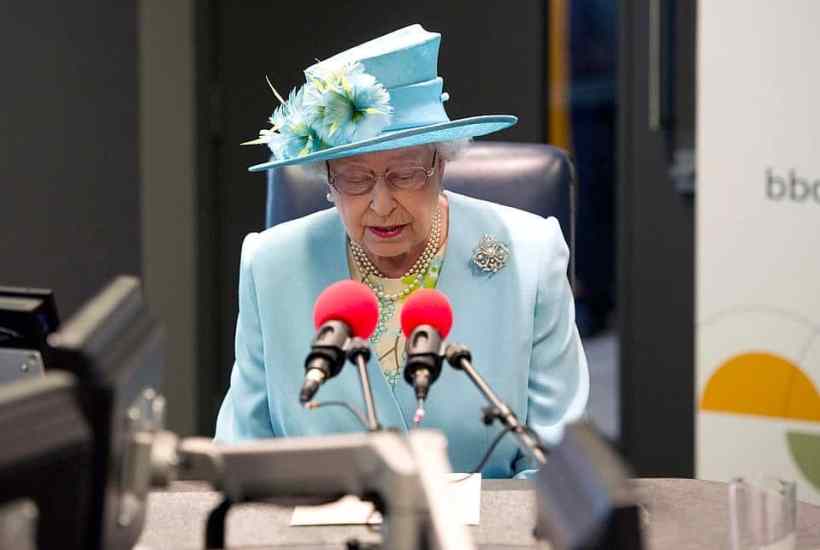The Queen and Prince Philip had written their names in the visitors’ book at a country house where I was a weekend guest; my hostess, a member of a family with a long and storied lineage, had been an intimate of the Royal Family for decades. But at dinner, I nearly choked on my Beef Wellington when the grand lady turned to me and said she thought the monarchy might not – and perhaps should not – continue after Elizabeth II. This was no criticism of the monarch herself, naturally, but ‘these days, one finds the institution of a hereditary monarchy increasingly hard to defend’. If the aristos don’t believe in the hereditary principle, I thought, perhaps it really is an idea whose time has passed.
The monarch herself never displayed any such havering. Not for her the public handwringing of her heir and successor. I experienced the magic of royalty only once, when the Queen visited the BBC. She was there to formally open New Broadcasting House (next to the old Broadcasting House) in London in 2013. The BBC is perhaps the most republican institution in the Kingdom but it was interesting to watch as the whole building fell under the Queen’s spell. A tiny old lady dressed head to toe in some pastel shade – was it teal? – shuffled around, handbag in hand, and all around her, cynical hacks swooned.
The chairman of the BBC board of governors, the director general and the head of news were leading the monarch around. I was in the receiving line, hoping not to say anything stupid. We had a brief exchange. I opted for monosyllabic replies to her questions, trying to avoid doing anything that would be memorable for the wrong reasons. One of the big cheeses explained to her that I had been reporting from the Syrian uprising, crossing into the country illegally (from the point of view of the regime).
‘Well, yes,’ said the Queen, ‘otherwise, it’s just: ‘One alleges this and the other one alleges that.’’ The BBC bosses rejoiced: ‘The Queen gets it,’ one said sotto voce, glad to have a royal endorsement of the BBC’s huge news budget.
Then she was introduced to a BBC executive who was standing next to me and who vomited forth a great glob of prepared remarks. The Queen, who was presumably used to this kind of thing, said literally nothing, the great glob of prepared remarks leaving no opening for an actual conversation. As she went round the newsroom and the various BBC studios, she displayed an iron refusal to pander. The executives sat her down in one studio to listen to some truly awful indy band perform live. The Queen’s face remained a mask throughout.
There was something mysterious about the magic that the Queen worked on the BBC as she shook hands and made small talk. In another way, this was just the effect that any famous person has on ordinary people. I once saw Kim Kardashian open a Shake Shack in Dubai, mobbed by an adoring crowd, similarly overcome. Politicians benefit from this in a small way and they’d probably misuse that power if we ever had an elected head of state. President Blair? No thanks. Like the grand dame in the country house, I think that employing the hereditary principle for choosing our head of state is probably indefensible. It’s the worst possible system, apart from all the others. Long live the King.
Got something to add? Join the discussion and comment below.
Get 10 issues for just $10
Subscribe to The Spectator Australia today for the next 10 magazine issues, plus full online access, for just $10.



















Comments
Don't miss out
Join the conversation with other Spectator Australia readers. Subscribe to leave a comment.
SUBSCRIBEAlready a subscriber? Log in